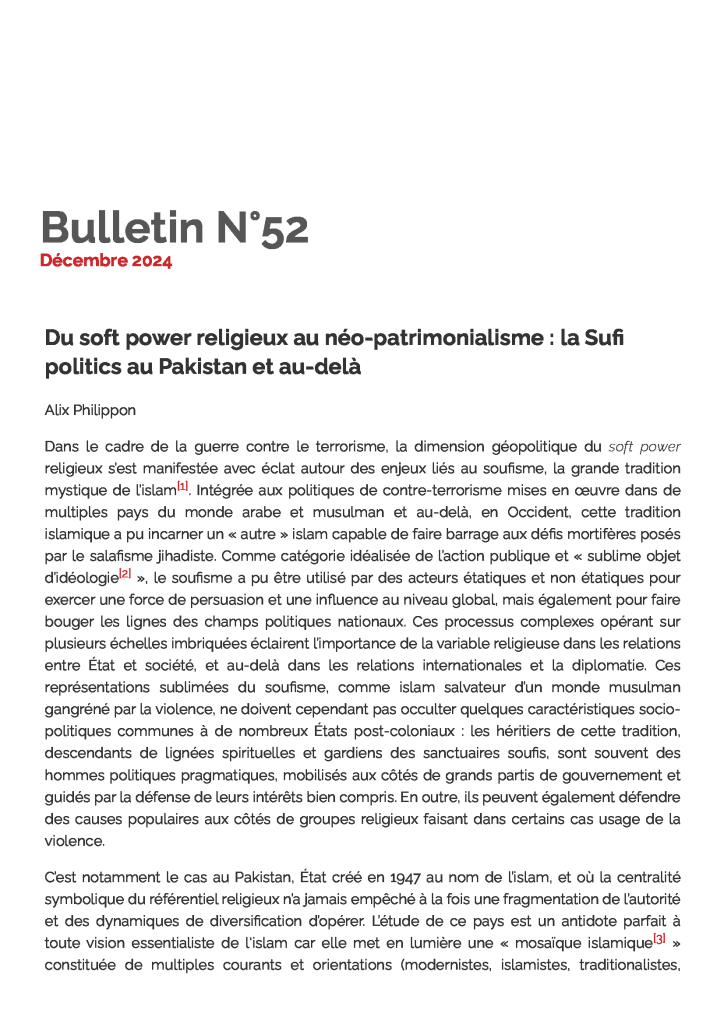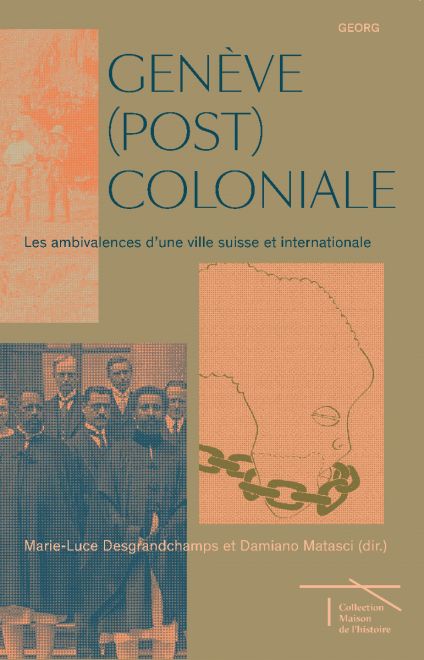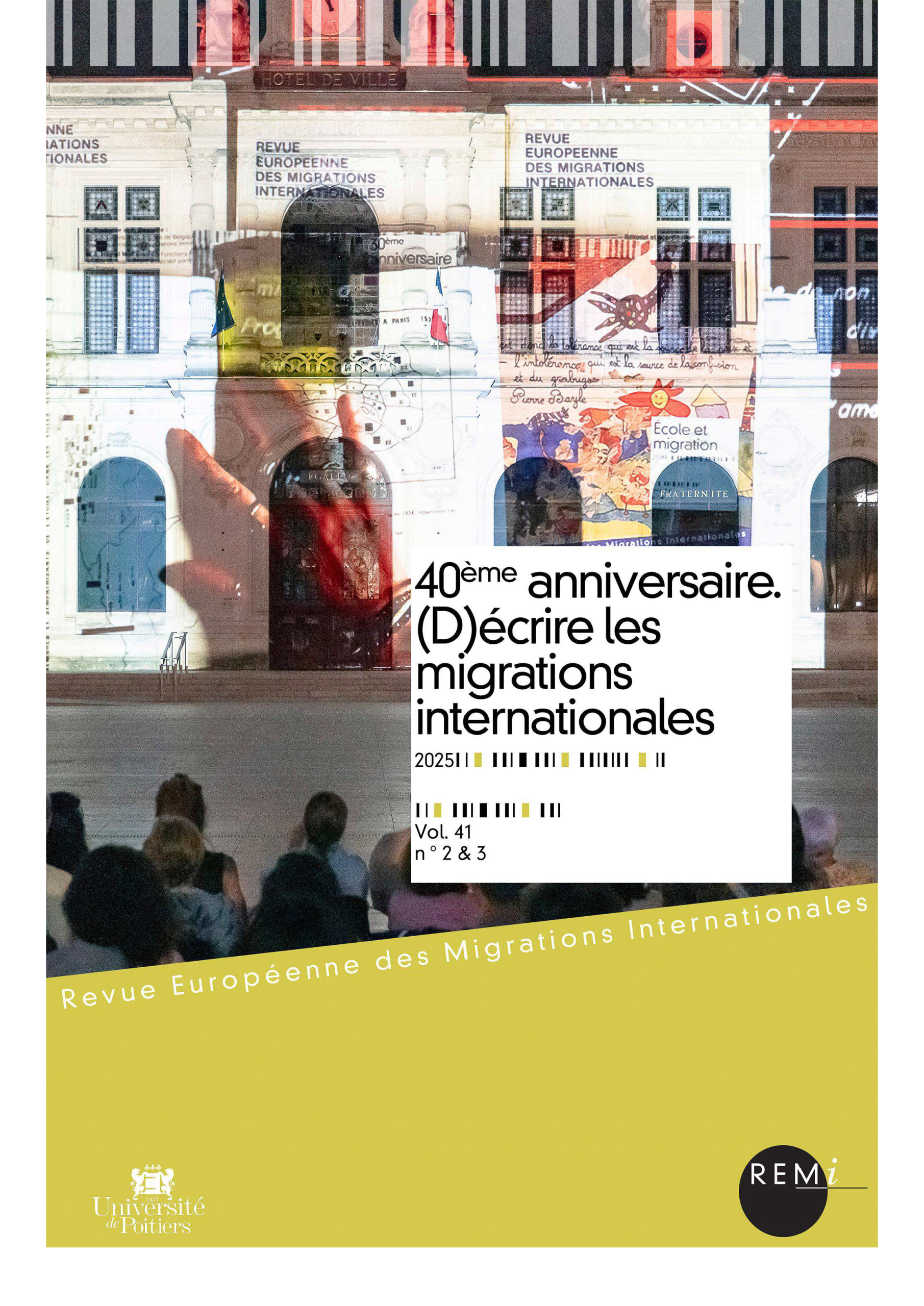Article by Alix Philippon: "From religious soft power to neo-patrimonialism: Sufi politics in Pakistan and beyond".

Alix PhilipponFrom religious soft power to neo-patrimonialism: Sufi politics in Pakistan and beyond". Bulletin of the International Observatory on Religion, n°52 [online]December 2024.
Extract:
"In the context of the war on terror, the geopolitical dimension of religious soft power has come to the fore in the form of the issues surrounding Sufism, the great mystical tradition of Islam. Integrated into the counter-terrorism policies implemented in many countries of the Arab and Muslim world and beyond, in the West, this Islamic tradition has come to embody an "other" Islam capable of standing in the way of the deadly challenges posed by jihadist Salafism. As an idealised category of public action and a "sublime object of ideology", Sufism has been used by state and non-state actors to exert persuasive force and influence at a global level, but also to move the lines of national political fields. These complex processes operate on a number of interlocking scales, highlighting the importance of the religious variable in relations between state and society, and beyond that in international relations and diplomacy. These sublimated representations of Sufism as the saving Islam of a Muslim world plagued by violence should not, however, obscure certain socio-political characteristics common to many post-colonial states: the heirs to this tradition, descendants of spiritual lineages and guardians of Sufi shrines, are often pragmatic politicians, mobilised alongside the major governing parties and guided by the defence of their own interests. In addition, they may also defend popular causes alongside religious groups, in some cases resorting to violence.
Share on
Read also


